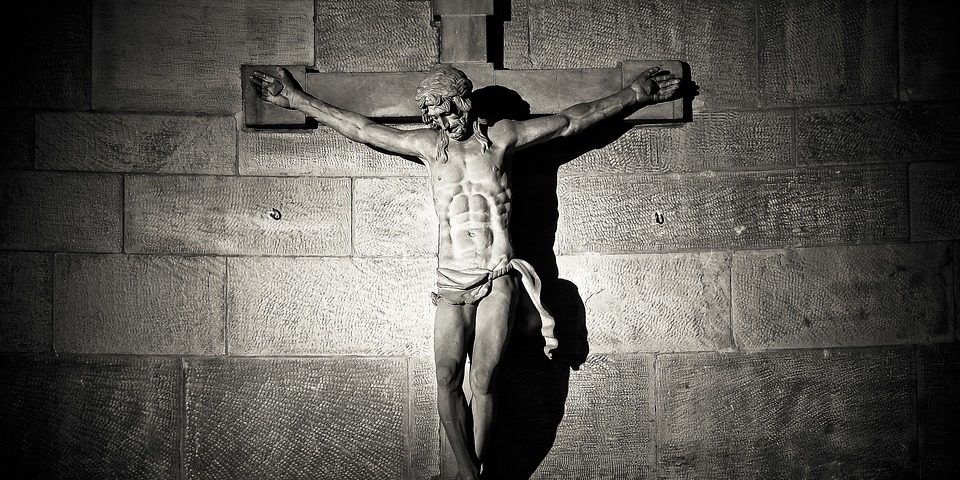The love Jesus is talking about—let’s be clear upfront—will result in suffering and maybe even death; it will lead to unpopularity and scorn and in some instances physical harm.
The love Jesus is talking about here, the love he’s recommending, isn’t safe. It’s not the sort of love “reasonable” people accept. It’s not common sense; rather, it’s different, dangerous. It’s why it’s important to remember that Jesus here isn’t talking to everyone, but really only to his disciples.[1] Because the love Jesus is talking about here isn’t for everyone, but only believers, only those with faith and guts.
Jesus is talking about more than the golden rule. Yes, obviously, as Jesus and others have taught: “Do to others as you would have them do to you.”[2] This is indeed a baseline of human morality, which, by the way, we fail repeatedly; it’s an obligation placed upon each of us, believer or not. But Jesus is talking about something more than the golden rule; he’s talking about uniquely Christian love, the sort of love which should make Christians different from others—risky love bound to get you in trouble. If, as I said, you’ve got faith and guts.
“[L]ove your enemies and do good to them…lend expecting nothing back; then…you will be children of the Most High.”[3] That’s the love that’s different, what’s more than the golden rule. What Jesus is saying is that not only are we to do unto others as we would have them do unto us, but that his followers are to be “children of the Most High,” loving the same way the “Most High” loves, the way God loves. And he loved the world so much he gave his only Son. He loved the world so much he suffered and died; instead of God’s wrath there was mercy, instead of anger there was patience and the embrace of suffering, even unjust suffering. We’re to love the way God in Christ loves; and he was falsely accused, beaten, crucified, and opened not his mouth. That’s why Jesus said, “Blessed are you when people hate you…Rejoice and leap for joy on that day!”[4] Because when we suffer the way Christ suffered, when we embrace suffering without causing it, like Jesus did, we are loving the way God loves the world—love genuinely unconditional, love that in truth cannot be defeated by hatred or violence, love which makes a cross a symbol of love, an instrument of death something venerable. It’s love that isn’t annulled by hatred (and that’s the point of it), but which chooses to suffer instead. That’s the love of Christ, and which is demanded of us, his disciples—we, believers with faith and guts, hopefully.
Now let’s be clear: this is where many Christians stop being Christians—at least in deed if not in name. Some reject this sort of love outright as foolish and dangerous, as giving way to evil too much. Others interpret Jesus’ words into submission, finding in them some false hidden and less radical meaning; maybe it’s just hyperbole, some suggest; never mind, you can keep your customary hatreds. Others, however (like me, I’ll confess), are more just disturbed by Jesus’ teaching here; I understand the simple, radical truth of it; as Dr. King said, “Jesus was very serious when he gave this command; he wasn’t playing.”[5] It’s just that the love Jesus says I should have for others, I see how much I don’t have it; I see how much my heart is still filled with self-centered bitterness, defensiveness, selfishness, cowardice, prejudice, fear, and hatred. I know the love Jesus shows us is real love, the only love that can bring light to all this darkness; I see it and want it. It’s just that I know how weak and sinful and violent I am in my own dark soul. And I don’t want to admit it, and so I begin to tell myself that Jesus didn’t really mean what he said, which I know is lie. Because I know he wants me to love my enemy; he wants me on the cross too. “Blessed are you when people hate you…Whoever does not carry his own cross…cannot be my disciple.”[6] It’s just I’m scared of it; and so, I stand here half a Christian—maybe with a little faith, but no guts at all.
In the Revelation to John, in the vision of the end, of God’s victory, the apostle heard a voice from heaven praising those who had conquered evil and Satan. “They conquered him,” this voice from heaven sounded, “by the blood of the Lamb and by the word of their testimony,” that is by eucharistic blood and by the word of the Gospel preached and lived. But also, this voice declared, because “love for life did not deter them from death.”[7] These who conquered evil, whom heaven praised, were they who chose not to defend themselves or fight but who instead chose to love in suffering and martyrdom, who chose that love which Christ loved with. That’s the plain biblical truth of the matter; saying anything to mitigate this truth is lying. We Christians are called to love like this, but most of us don’t love like this. This is what’s the matter; this is where we need to be convicted and inspired—to love like Christ, even when it’s dangerous, when suffering is what seems to be the only fruit of it, when love looks only like a cross, all of it Good Friday. But it’s what we need to do, we Christians—to love in the darkness, even when we’re frightened. To love like we’ve got faith and guts. Amen.
[1] Luke 6:20, 27
[2] Luke 6:31
[3] Luke 6:35
[4] Luke 6:22-23
[5] Martin Luther King, Jr., A Knock at Midnight, 54
[6] Luke 6:22; 14:27
[7] Revelation 12:11
© 2022 Rev. Joshua J. Whitfield










